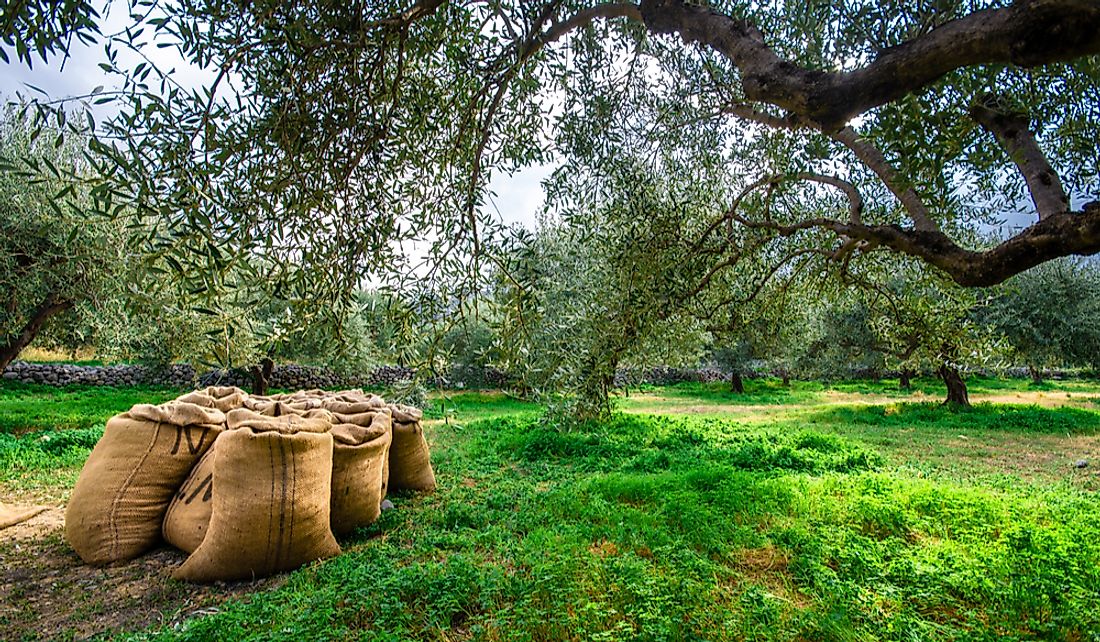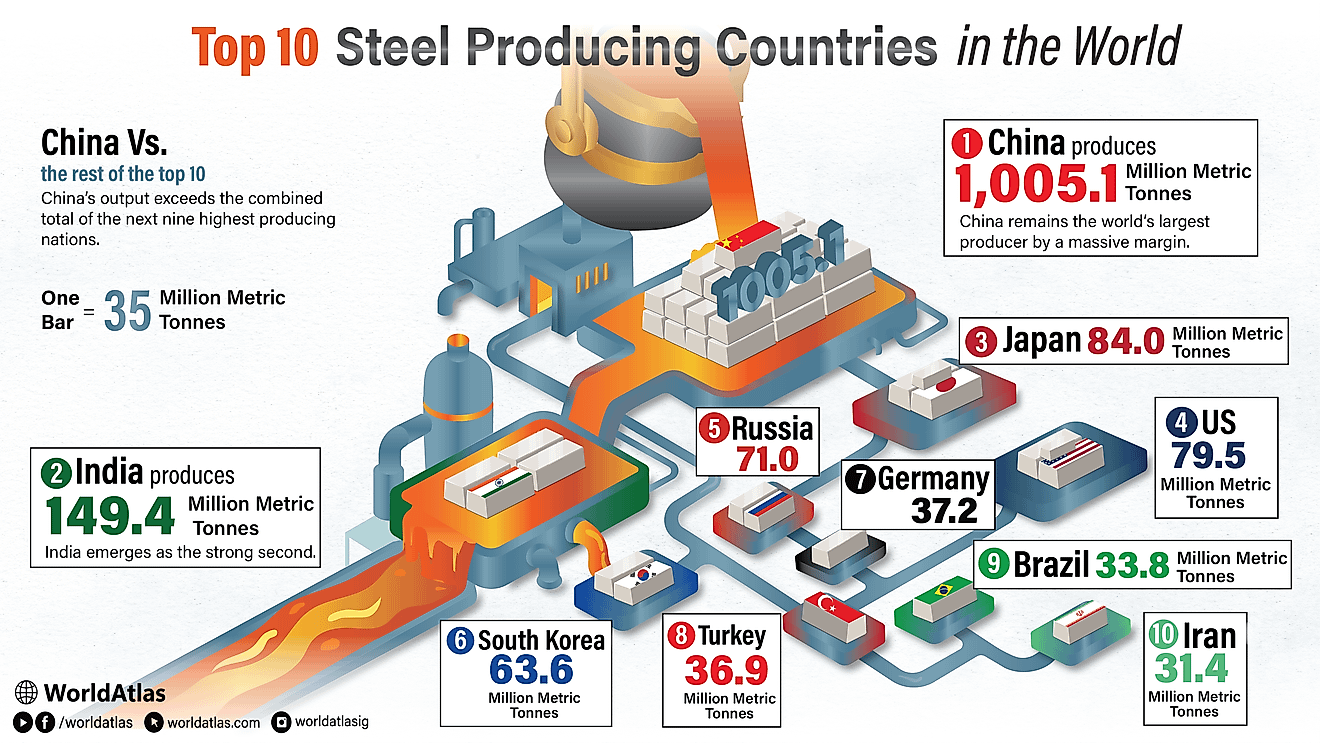What Are The Biggest Industries In Greece?

Greece is an independent nation in southeastern Europe. Greece covers an area of 50,949 square miles and has a population of about 11 million people according to 2016 estimates. The country has abundant natural resources with coastlines along the Mediterranean Sea, the Cretan Sea, and the Ionian Sea. It has the longest coastline along the Mediterranean and the world’s 12th longest coastline, which covers a distance of 8,498 miles. Greece has a nominal GDP of $203 billion and GDP based on purchasing power parity of $307 billion. According to the 2017 figures, the country was the 17th EU’s largest economy out of 28 member states. Greece is categorized as a developed nation with some of the major industries being tourism, agriculture, mining, and manufacturing, among others.
Agriculture
Greece is a major agricultural producer in the European Union, and the sector employs about 528,000 people or approximately 12% of the workforce in the country. Agriculture in the country accounts for about 3.6% of the GDP valued at about $16 billion. The majority of the immigrants in the country are employed within the agriculture industry. Agriculture in Greece is characterized by a small size and family hold units, and the cooperative organization in the country has remained relatively low for several years. The country produces different varieties of crops and different types of livestock products. Currently, agriculture in the country is heavily subsidized through the Common Agricultural Policy (CAP). Greece was the leading producer of cotton in the EU and in 2010 the country produced 183,800 tons of cotton. The country is also a world leader in olive production with 2,232,412 metric tons, olive oil production with 344,615 tonnes, fig production with 50,368 metric tons. The country also produces 8,000 tons of pistachios, 229,500 tons of rice, 44,000 tons of almonds, 1.4 million tons of tomatoes, 578,000 tons of watermelons, and 22,000 tons of tobacco.
Tourism
Tourism in the country plays a critical role in the economy, and it is one of the most crucial industries in Greece accounting for about 25% of the country's GDP. Tourism in Greece has a long history although it started flourishing after the 1950s when the tourist arrivals were recorded at 33,000 in 1950 and went up to stand at 11.4 million in 1994. In 2018, the country attracted more than 24 million tourists and the figures in 2017 were 22.1 million, while in 2015 the figures stood at 21 million visitors. These figures indicate that Greece is one of the most visited nations in Europe on the world at large. Ministry of Culture and Tourism in the country is responsible for the overall tourism management, while the Greek National Tourism Organization is responsible for promoting tourism in the country.
The country has been one of the leading tourism destinations in Europe dating back to antiquity because of its rich history and culture which is partly seen in the 18 different UNESCO World Heritage sites. The country has numerous islands, with estimates between 1,200 and 6,000. Some of the popular tourist destinations in the country include the country's capital city of Athens, Mykonos, Santorini, Corfu, Rhodes, Chalkidiki, and Crete, among others. The government of Greece has in the recent past focused on promoting religious tourism, particularly in areas of the significant historical religious present like the monasteries in Mount Athos and Meteora.
According to the OECD report, tourists spend an average of about $1,073 in Greece which ranks the country as the world's 10th highest in tourist expenditure. In 2008, the tourism industry was responsible for creating employment directly or indirectly for about 840,000 people, which accounted for about 19% of the workforce in the country.
Mining
Mining of different minerals in Greece has a long history and dates back to about 1000 BCE. Despite the long history of minerals in the country, the industry has contributed very little to the economy of Greece. Some of the minerals found in Greece include zinc, lead lignite, magnesite, bauxite, and petroleum. As of 2015, the country was the 7th leading exporter of pumice in the world, and by far the world’s largest producer of perlite. Greece produces approximately 1% of the total bauxite in the world and about 9% of all the bentonite produced in the world. The mining industry in the country processes the produced mineral fuels, metals, industrial minerals. The mining industry in Greece is harmonized by the mining code, which stipulates several regulations and laws on the extraction of ornamental rocks and industrial minerals. The code also states the safety and health factors for various quarrying and mining activities.
Challenges Facing The Greek Economy
In 2009, Greece was heavily affected by the economic recession and its economy shrank by 2.3% in 2009, and reduced further by 3.5% in 2010. By 2011, the economy reduced by 6% when the country's GDP stood at $298.1 billion. To mitigate and overcome the severe effects of the recession, the country took the measures to reduce government expenditure, reduce tax evasion, and reform labor and product markets, and reworking on health care and pension schemes. Unemployment rates in the country have been high, and in 2012 it was 14.8% and increased dramatically in 2013 to stand up 28%. However, in 2018 it had dropped slightly to 20.1%. The effects of high unemployment rates, recession, and huge public debt have led to increased poverty levels in the country. In 2015, it was estimated that the number of people living in extreme poverty increased to 15% compared to 8.9% in 2011, and this is a huge contrast the figures of 2009 when those living in extreme poverty were about 2.2%.











